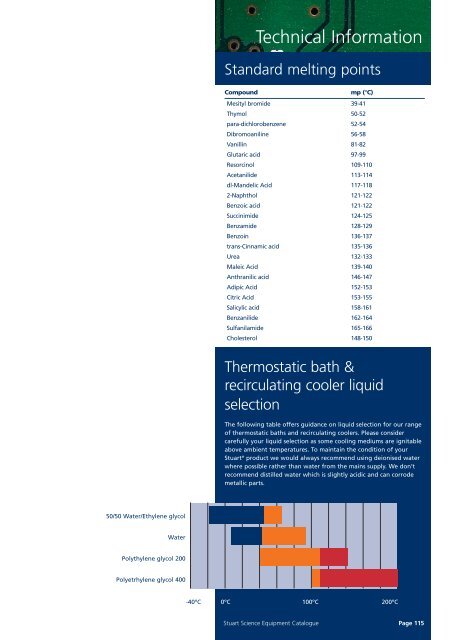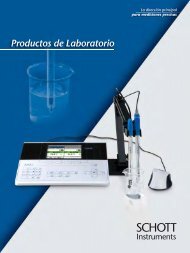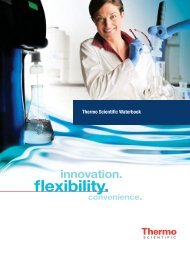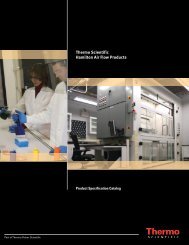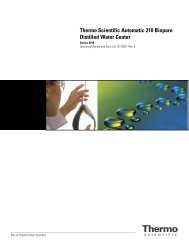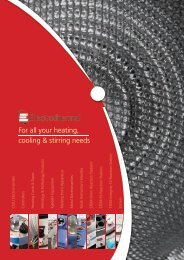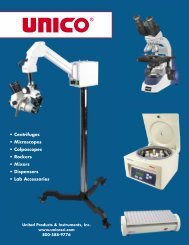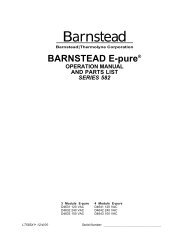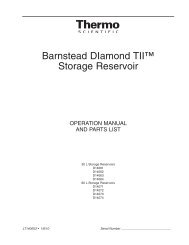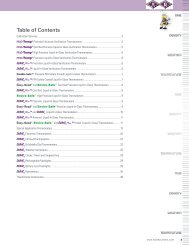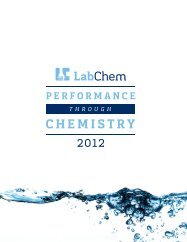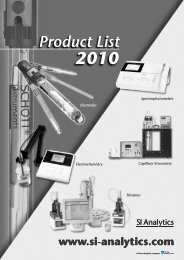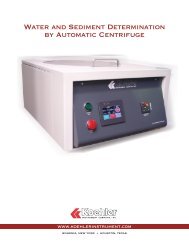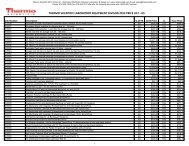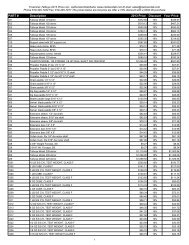Science Equipment
Science Equipment
Science Equipment
You also want an ePaper? Increase the reach of your titles
YUMPU automatically turns print PDFs into web optimized ePapers that Google loves.
50/50 Water/Ethylene glycol<br />
Water<br />
Polythylene glycol 200<br />
Polyetrhylene glycol 400<br />
Technical Information<br />
Standard melting points<br />
Compound mp (°C)<br />
Mesityl bromide 39-41<br />
Thymol 50-52<br />
para-dichlorobenzene 52-54<br />
Dibromoaniline 56-58<br />
Vanillin 81-82<br />
Glutaric acid 97-99<br />
Resorcinol 109-110<br />
Acetanilide 113-114<br />
dl-Mandelic Acid 117-118<br />
2-Naphthol 121-122<br />
Benzoic acid 121-122<br />
Succinimide 124-125<br />
Benzamide 128-129<br />
Benzoin 136-137<br />
trans-Cinnamic acid 135-136<br />
Urea 132-133<br />
Maleic Acid 139-140<br />
Anthranilic acid 146-147<br />
Adipic Acid 152-153<br />
Citric Acid 153-155<br />
Salicylic acid 158-161<br />
Benzanilide 162-164<br />
Sulfanilamide 165-166<br />
Cholesterol 148-150<br />
Thermostatic bath &<br />
recirculating cooler liquid<br />
selection<br />
The following table offers guidance on liquid selection for our range<br />
of thermostatic baths and recirculating coolers. Please consider<br />
carefully your liquid selection as some cooling mediums are ignitable<br />
above ambient temperatures. To maintain the condition of your<br />
Stuart ® product we would always recommend using deionised water<br />
where possible rather than water from the mains supply. We don’t<br />
recommend distilled water which is slightly acidic and can corrode<br />
metallic parts.<br />
-40ºC 0ºC 100ºC 200ºC<br />
Temperature<br />
Stuart <strong>Science</strong> <strong>Equipment</strong> Catalogue Page 115


